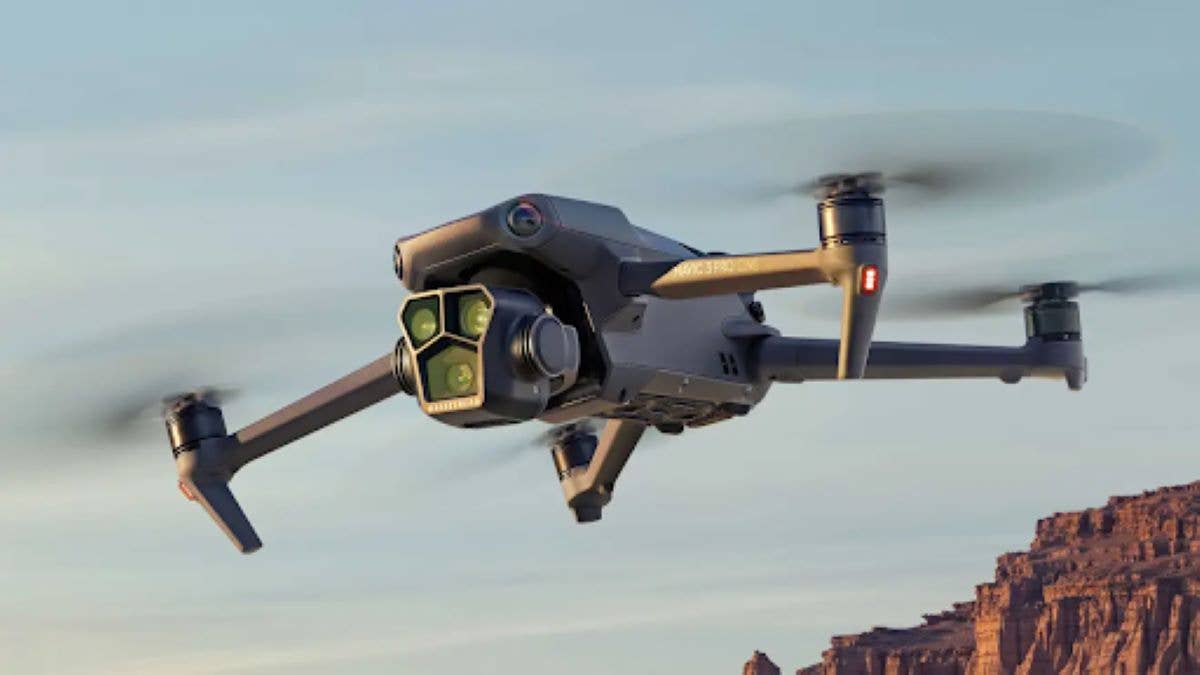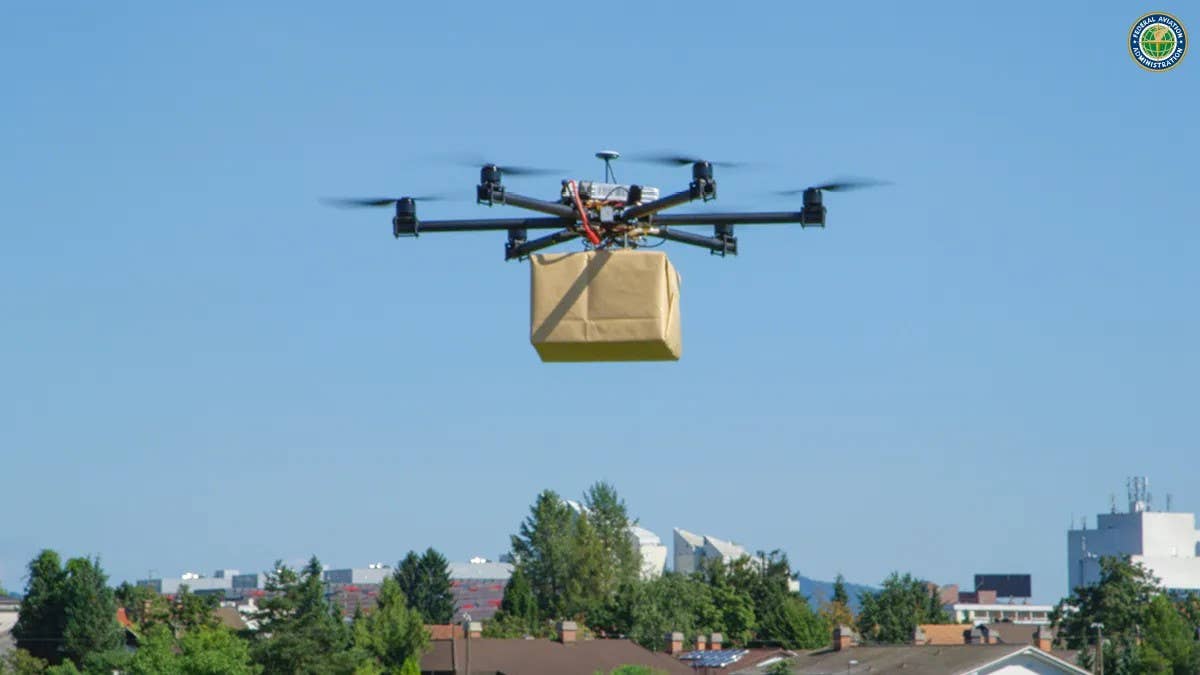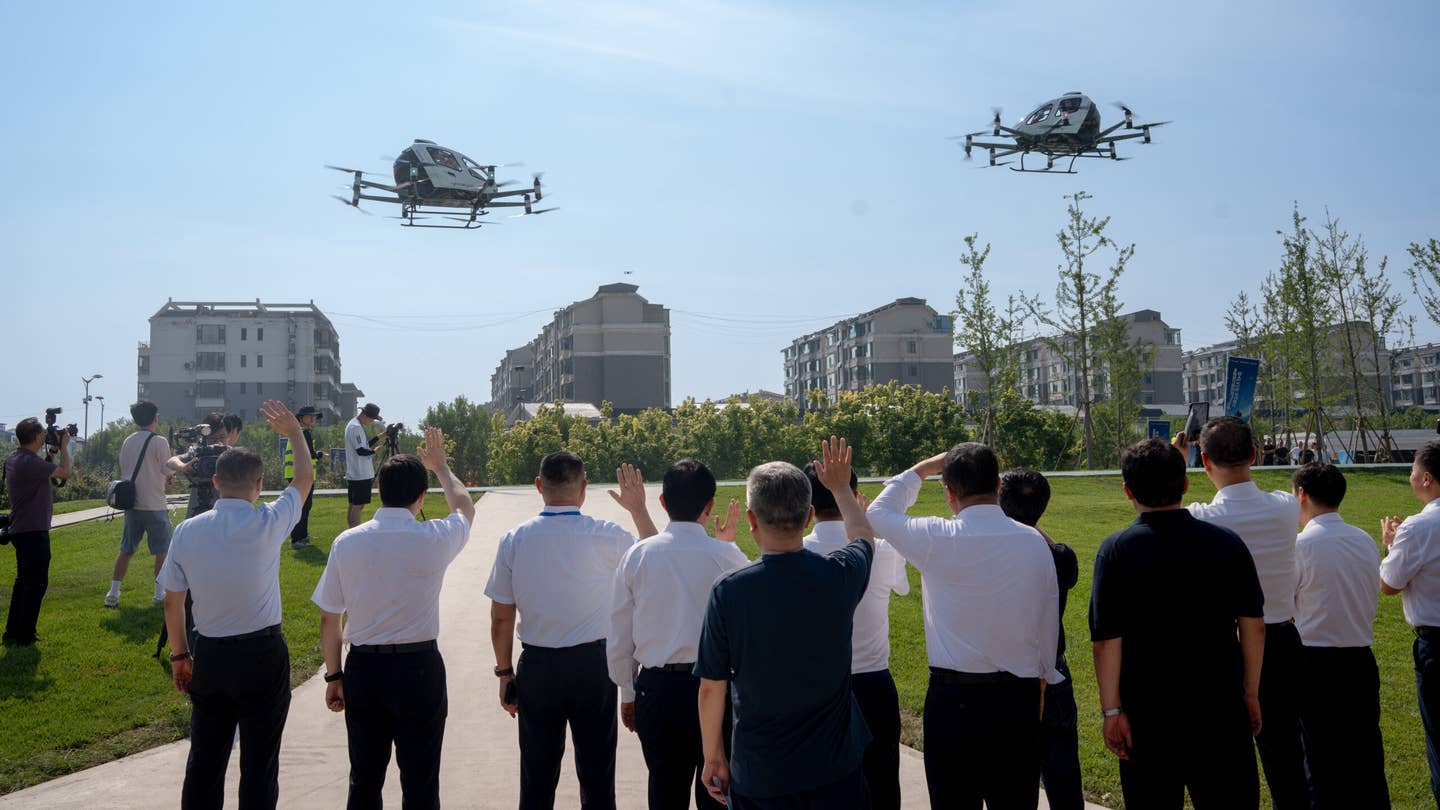‘TikTok With Wings’: House Republicans Take Aim at DJI Drones
The Countering CCP Drones Act would add DJI to FCC’s “covered list.”

DJI’s newly released Mavic 3 Pro may soon be banned by the FCC. [Credit: DJI]
Da-Jiang Innovations, better known as DJI, may have poked the bear.
The Chinese drone manufacturer, which has drawn scrutiny from U.S. lawmakers at the state and federal levels and was blacklisted by the Department of Defense, could soon be banned from government use entirely if a bill introduced Wednesday by Reps. Elise Stefanik (R-New York) and Mike Gallagher (R-Wisconsin) passes.
The legislation, dubbed the Countering CCP Drones Act, calls for the Federal Communications Commission to add DJI to its "covered list"—essentially, a group of companies with which the U.S. government refuses to do business. The list, which also includes partly state-owned Chinese firms like Huawei and ZTE Corporation, cites them as threats to national security.
The addition of DJI to the Covered List would prevent it from doing business with the U.S. government and its contractors and prohibit the FCC from authorizing its equipment.
“DJI drones pose the national security threat of TikTok, but with wings," Stefanik warned. “The possibility that DJI drones could be equipped to send live imagery of military installations, critical infrastructure, and the personal lives of American citizens to China poses too great a threat. Allowing this practice to continue in the U.S. is playing with fire. This Chinese-controlled company cannot be allowed to continue to operate in the U.S.”
Federal and state-level actors have been sounding the alarm on DJI for years, claiming that the firm’s drones are being used to spy on government secrets, such as by flying over military bases.
Do these claims hold water? It’s possible. But, at present, there is no conclusive evidence the drones are collecting and transmitting data back to China. DJI has also repeatedly denied any links between itself and the Chinese government or military, saying that it is "disappointed" by the bans in the U.S.
However, some of the company’s claims are in doubt. The Washington Post, citing a report from security and surveillance industry research group IPVM, revealed last year that DJI had in fact received funding from “several state-backed investors,” namely:
- The state-owned Guangdong Hengjian Investment Holding
- The state-owned SDIC Unity Capital fund
- The Shanghai government-run Shanghai Venture Capital Guidance Fund
- And the state-owned China Chengtong Holdings Group
In response, DJI spokesman Adam Lisberg did not deny the report, saying, “DJI is privately held. The company is solely managed by and majority-owned by the founder team. Shareholders other than the founders do not participate in the company’s management and operation.”
Whether that funding translates to government or military involvement is another story. But the opaque response was unusual for DJI, which has a history of pushing back strongly against claims of government ties.
That’s exactly what the company did when the U.S. government levied another accusation against it—that DJI drones were being used to surveil Uyghur Muslims, an ethnic majority in China’s Xinjiang region facing an ongoing genocide. The accusation also landed DJI and seven other Chinese companies on a U.S. investment blacklist.
While feasible, the link between DJI and the Chinese government’s activities in Xinjiang is unconfirmed.
“It’s very unfortunate. We’ve stated unequivocally that we have had nothing to do with treatment of Uighurs in Xinjiang,” said Adam Welsh, the firm’s head of global policy.
U.S. lawmakers have echoed these concerns and others, including DJI’s reportedly large market share among casual U.S. drone users and government-backed programs. In a statement introducing Wednesday’s bill, Stefanik claimed that over half of drones sold in the U.S. are made by DJI.
CNBC estimated that the company has close to a 70 percent market share worldwide, dwarfing its rivals.
“U.S. intelligence services have warned that DJI poses a serious national security threat due to the level of sensitive information it collects and the potential for Beijing to access that data,” said FCC Commissioner Brendan Carr, a Republican, who is also leading the fight to ban TikTok. “Despite mounting evidence, the U.S. has lacked a consistent and comprehensive approach to addressing the potential threats posed by a company that might be operating as a Huawei on wings. That would end by passing the Countering CCP Drones Act.”
Carr is correct in saying that DJI drones are capable of collecting sensitive information – most are built with high-resolution cameras and can be equipped with additional sensors like thermal imagers or LiDAR.
That information can also be transmitted to a ground station via DJI’s Lightbridge system. But data obtained by the drone—unlike data about its location and identification—can be encrypted, and data sharing can be turned off entirely. It can also be operated without an internet connection.
So, while it’s not out of the question that China could be spying on us through DJI, there has yet to be any conclusive evidence brought forward by lawmakers who support a ban. Proving the link between the two won’t be easy. But speculation alone may be enough to force the U.S. government’s hand.

Subscribe to Our Newsletter
Get the latest FLYING stories delivered directly to your inbox






